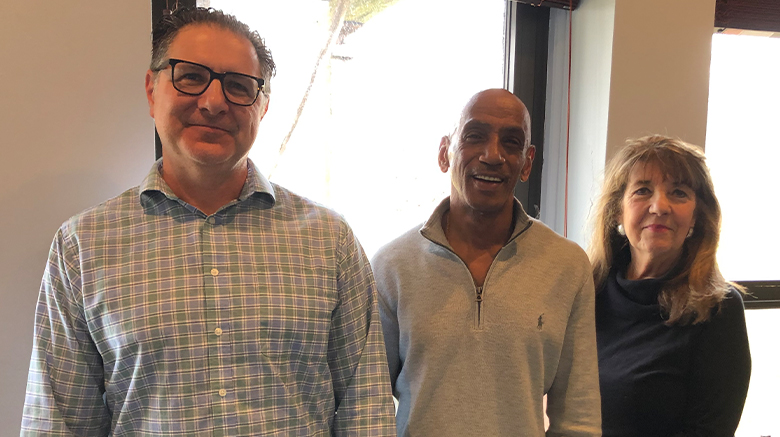On March 2, the criminal justice, religious studies and social sciences departments at the Long Island Campus hosted Greg Mingo for a lecture about his time behind bars for crimes he did not commit.
With help from the Innocence Project, Mingo was freed from a double-life sentence after being incarcerated for 40 years.
In 1980, a couple was killed in a double robbery-murder in Queens, and one year later, Mingo found himself on trial for murder.
Though he maintained his innocence and even had an alibi witness, his defense attorney never called them to testify on his behalf. It took two trials – the first ended in a hung jury – to convict Mingo, who was given two consecutive life sentences in December 1982.
‘People gave me hope…’
Speaking to SJNY students, faculty and staff, Mingo, now 70 years old, said enrolling in college, studying law, working in the law library and helping fellow inmates get sentences reduced helped fill free time in prison.
“People gave me hope, but I had to find something to do with the hope they gave me,” said Mingo. “I couldn’t just wait for something to happen for me.”
Mingo also taught legal research classes, mentored at-risk minors and counseled fellow inmates.
While in prison, Mingo made countless attempts at appeals, maintaining his innocence. Without any opportunity to appear before the parole board – and without access to the internet, phone books or other essential tools – it was nearly impossible to receive legal help from the outside.
Finally, in 2020, the Innocence Project decided to review Mingo’s case after an online petition created by his niece received public attention.
On Governor Andrew Cuomo’s last day in office, he commuted Greg’s sentence to time served, and Mingo returned home on Sept. 16, 2021.
A New Purpose
“The best day in prison is the last day in prison,” said Mingo. “But I thought, what do I do with the rest of my life?”
As a free man, Mingo continues to help the community of inmates and former inmates he built in prison. He spends his time on worthy advocacy causes, like clemency work with CUNY Law School, mentoring children affected by their parents’ incarcerations and giving lectures for the Innocence Project.
Born and raised in Harlem, Mingo embraces his role as an agent of hope and aims to influence criminal justice reform.
“Anybody can fall victim to the system, especially those raised where I came from,” said Mingo. “We’re set up for failure, but I’m not bitter about what happened to me. I can’t have a better tomorrow if I’m still focused on yesterday.”


